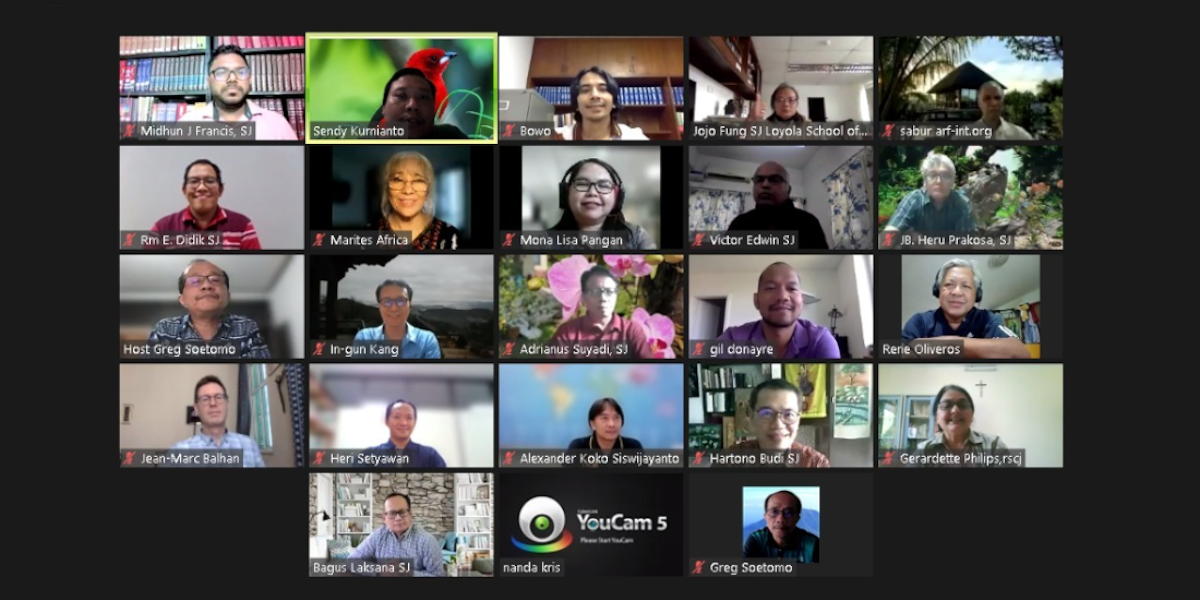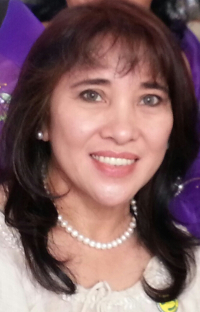 What started as an individual reflective writing exercise 10 months ago turned into an inspiring journey of collaborative discernment for those of us—Jesuit priests, religious, and lay men and women–who accepted the invitation to contribute insights and lessons learned from our studies and practices in Muslim-Christian relationship-building. We are to write articles that will bring to the fore diverse perspectives on the theme: “The Ignatian Spirituality and Islamic Teachings/Muslim Communities: Asian Context” as part of the book project of Jesuits Among Muslims in Asia spearheaded by Indonesian Jesuit, Fr Greg Soetomo SJ, as our contribution for the Ignatian Year.
What started as an individual reflective writing exercise 10 months ago turned into an inspiring journey of collaborative discernment for those of us—Jesuit priests, religious, and lay men and women–who accepted the invitation to contribute insights and lessons learned from our studies and practices in Muslim-Christian relationship-building. We are to write articles that will bring to the fore diverse perspectives on the theme: “The Ignatian Spirituality and Islamic Teachings/Muslim Communities: Asian Context” as part of the book project of Jesuits Among Muslims in Asia spearheaded by Indonesian Jesuit, Fr Greg Soetomo SJ, as our contribution for the Ignatian Year.
Having had the privilege of working with Fr Greg, who serves as Asia Pacific Coordinator for Dialogue with Islam, together with his dedicated team of Jesuits–Fathers Victor Edwin, Heru Prakosa, Sigit Setyo Wibowo, Francis Midhun, and Heri Setyawan–the prospect of contributing to the book was a challenge that I readily accepted. As one of two women in a team of 12 writers (mostly Jesuits from around the Asia region who are engaged in collaborative work with Muslims), I saw this as an opportunity not only to articulate insights and lessons learned from my experiences as a lay woman in the field of interreligious dialogue, but also to explore how I could see them through the lens of Ignatian Spirituality. I figured that, in so doing, the lessons I learned from my experiences might help translate Ignatian Spirituality in a language that can be understood and appreciated by all religious and lay practitioners in the field, including Muslims, and be useful to them in their Muslim-Christian relationship-building efforts.
In the desire to “see all things new in Christ,” practitioners of Ignatian Spirituality who are engaged in the field of interreligious dialogue are challenged to apply its practices—such as the Spiritual Exercises and spiritual conversations—in ways that will honour and respect the beliefs and practices of people of other faiths while at the same time enable them to see and appreciate the goodness of God. In this light, those of us who are contributing articles to this book are invited to seek and find in the diversity of faiths ways of signifying Ignatian Spirituality so that it may be a mutually useful means of addressing complex challenges facing the youth, and issues of poverty and ecology in communities where Muslims and Christians live alongside each other as neighbours.
While, at first, I thought one year was too long a period for an article to be written, I later learned to appreciate that this project is meant to be a long-term and methodical process consistent with the Ignatian practice of discernment. This year-long reflective writing period gives ample time for the process to unfold between the time of writing, review, and publication.
In the process, I experienced how essential “seeing all things new in Christ” is to the practice of discernment. This holds true especially in the endeavour of Muslim-Christian relationship-building if one hopes to succeed in it. The capacity to “see” God’s goodness in the “other” cannot be developed just by reading books or attending formal classes in interreligious dialogue. One must practice action-reflection. This is a combination of moments of quiet discernment and moments of manifesting or applying what has been discerned through reflective action. These complementary moments are present in the Ignatian practice of spiritual conversations that St Ignatius deemed valuable to the mission of the Society of Jesus and regarded as “one of the apostolic works of the Society”.
This realisation was a turning point in my writing. I began to see Ignatian charism in new light and appreciate that what I had come to value in my practice of Transformative Dialogue has a term familiar to the Jesuits: spiritual conversation. While this is significant to my work, I look forward to other aspects of Ignatian Spirituality that my co-authors “see” and can give new meaning to in our journey towards building mutually respectful Muslim-Christian relations.
 Marites Guingona-Africa PhD is the founder of The Peacemakers’ Circle Foundation Inc, a non-profit Manila-based non-government organisation that promotes various forms of dialogue among peoples of diverse cultures and beliefs. She teaches courses on Muslim-Christian Dialogue for Nation-Building and Conflict Transformation for Peace Among Religions at the Ateneo de Manila University.
Marites Guingona-Africa PhD is the founder of The Peacemakers’ Circle Foundation Inc, a non-profit Manila-based non-government organisation that promotes various forms of dialogue among peoples of diverse cultures and beliefs. She teaches courses on Muslim-Christian Dialogue for Nation-Building and Conflict Transformation for Peace Among Religions at the Ateneo de Manila University.

